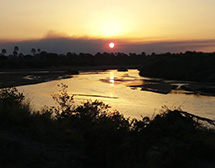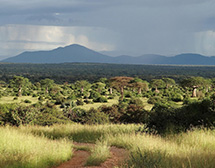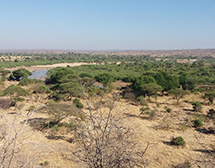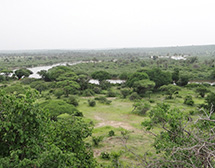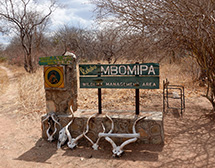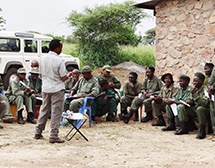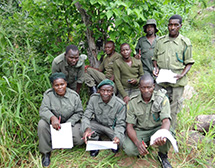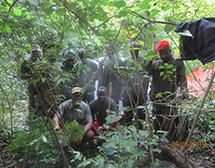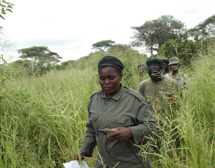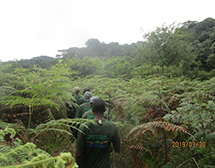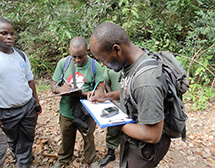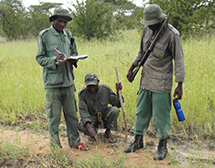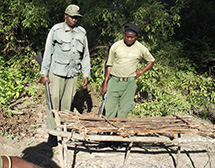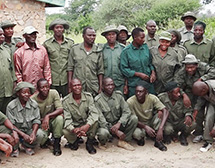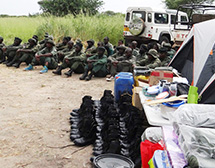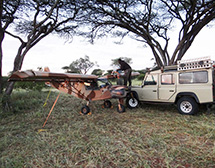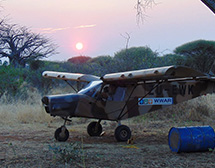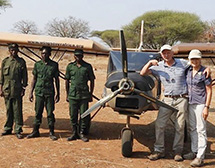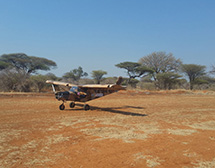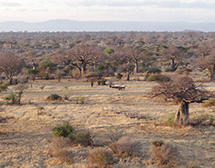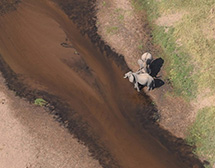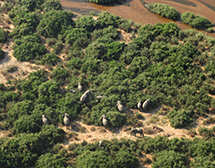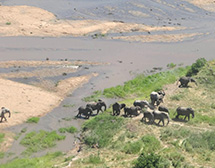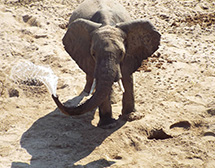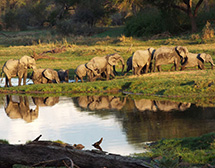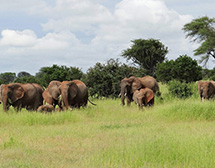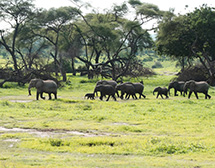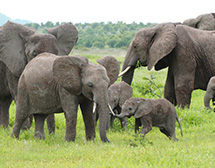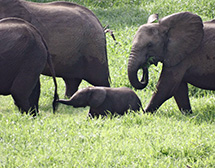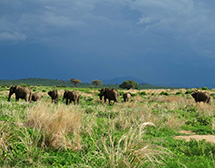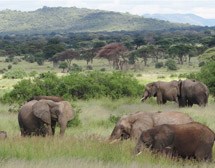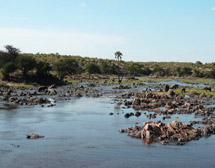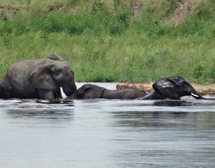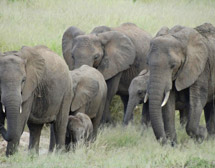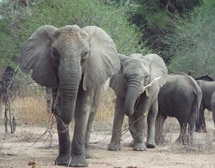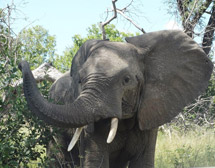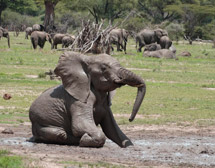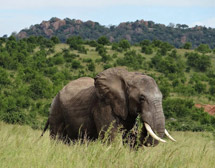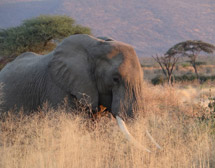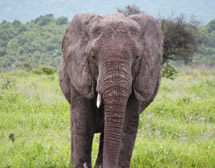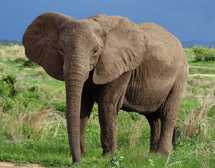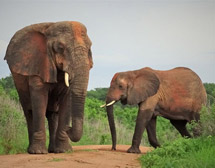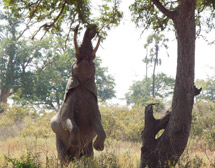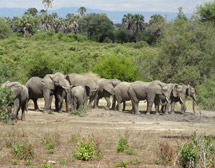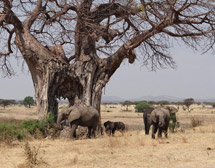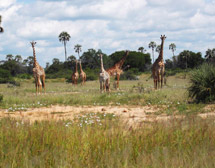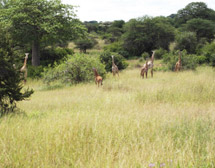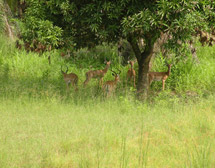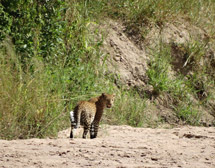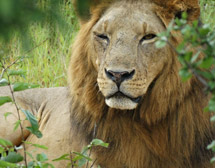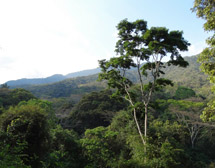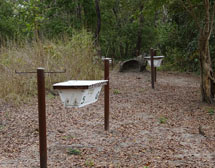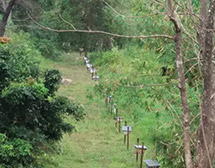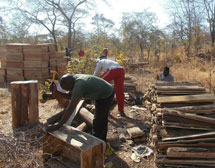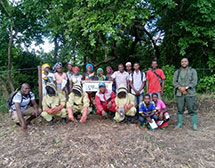STEP – Southern Tanzania Elephant Program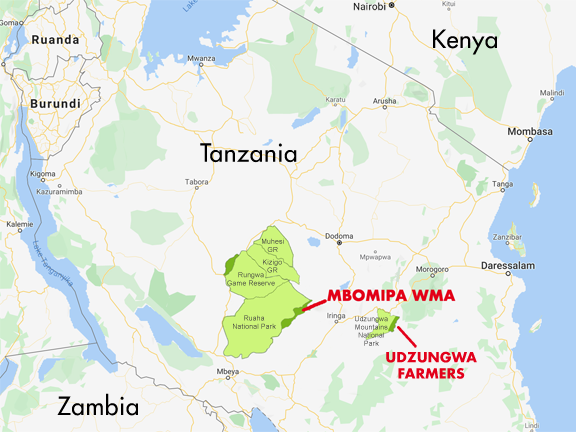
Tanzania lost 60% of its elephants between 2006 and 2015. The main reason was poaching, but the loss of the habitat of the elephants is also playing a threatening role.
STEP was founded in 2014 and is a Tanzanian NGO that supports anti-poaching measures in the Ruaha-Rungwa ecosystem, as well as supporting communities living with elephants.
This region was greatly affected by poaching: the Selous game reserve alone lost around 55,000 elephants between 2006 and 2013 (only 14,000 elephants were counted in 2014), and more than 12,000 animals were killed in the Ruaha Rungwa area.
With around 16,000 elephants, the Ruaha area is the largest elephant population in East Africa today!
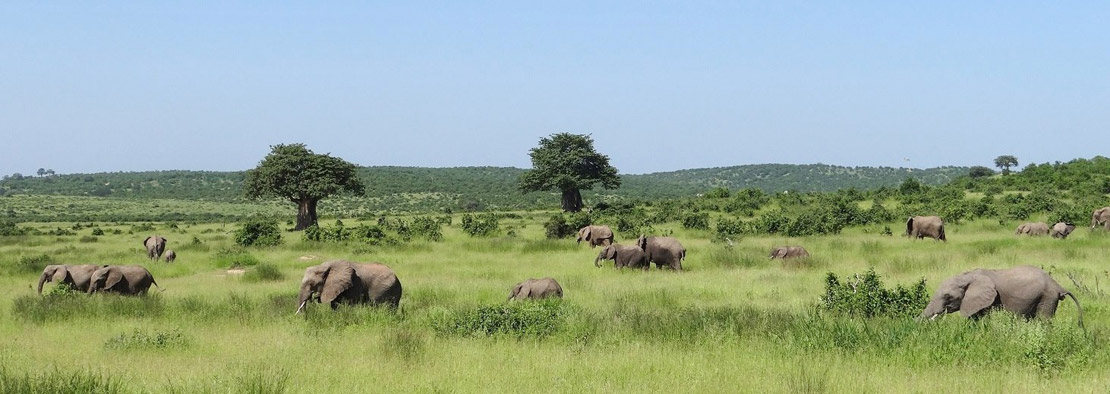
MBOMIPA WILDLIFE MANAGEMENT AREA
Protection of (still) intact nature
On the eastern edge of the Ruaha National Park in the southwest of Tanzania, STEP is coordinating protection of an important elephant area within a diverse 777 sq km nature area. The reserve, called MBOMIPA Wildlife Management Area, belongs to the surrounding communities and is an extremely valuable retreat for many animals, including lions, giraffes and several hundred elephants. But the natural treasure is threatened by illegal deforestation for charcoal production and use by cattle herds, ivory and game meat, but also illegal fishing and wild honey attract poachers.
STEP employs 30 so-called village scouts who protect the area with foot patrols. In addition, flight surveillance is carried out regularly. The aircraft was financed by donations, the pilots work on a voluntary basis. The village scouts come from the surrounding villages, their commitment to this project makes an important contribution to the acceptance of the wild animals by the villagers in addition to the regular and reasonable payment.
Climate change and corona crisis
In times of the Covid 19 crisis and climate change, elephants are more threatened than ever. An increase in poaching is feared in the absence of tourists and the money they bring into the country. And given the widespread drought, human-wildlife conflicts over scarce water and food resources are escalating. Qualified gamekeepers are essential for effective protection of elephants. In addition, local conflicts need to be mitigated and people informed about protective measures.
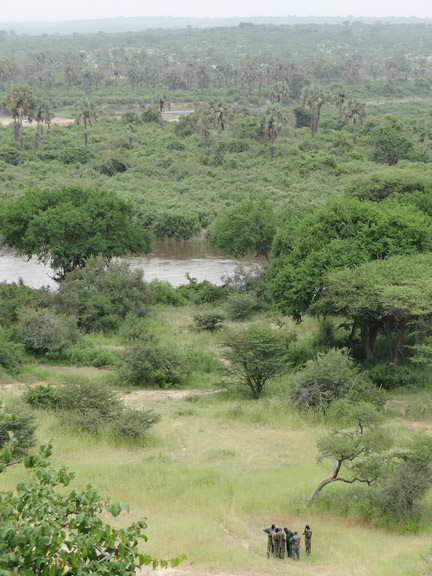
All of this is exemplary in the MBOMIPA area - until now. It is all the more important to continue the work of the Village Game Scouts.
Future for Elephants tries everything to help this valuable project through these difficult times. We support the scouts' remuneration and vital supplies, and support the aerial protection.
Please help keep the project alive!
Support the work of the scouts with a donation, keyword Mbomipa.
UDZUNGWA BEE HIVE PROJECT
Support for the farmers bordering the Selous Game Reserve (via STEP)
The settlement Mzoli Station Village is adjacent to the Selous Game Reserve and its inhabitants are peasants with an average daily income of 1 Euro. The fields have frequently been ravaged by elephants passing through. In order to keep the pachyderms out of the fields, donated beehive fences were erected - diverting the elephants very effectively and, at the same time, generating an income for the peasants who sell the honey. 28 peasants, mainly women, participate in this project and they urgently need ten bee-keeper’s suits 50 Euro each suit), workshops hosted by bee specialists and an additional 50 beehives (40 Euro each beehive) (pictured with our organization member Susan Bätz).
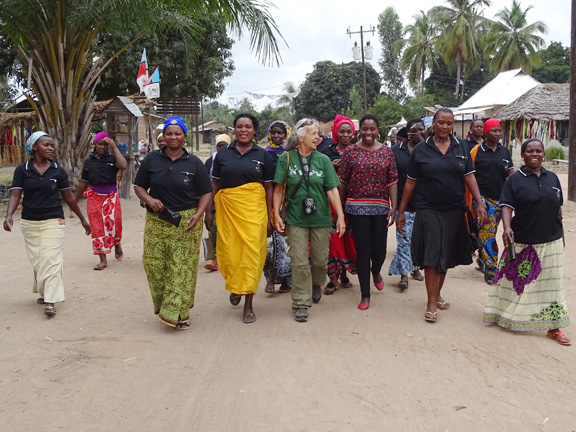
Read how STEP prevents human-elephant conflicts in Udzungwa:
stzelephants.org/projects/human-elephants-co-existence/
Read more about the Udzungwa area:
stzelephants.org/where-we-work/udzungwa/
Please help the farmers with a donation, keyword Udzungwa
RELATED LINKS
News from the
STEP-Elephant-Research-Team
Report on Deutschlandfunk about poaching in Tanzania:
Töten in Tansania - 60 Prozent der Elefanten abgeschlachtet
Articles and many photos by STEP pilots Anne Yeoman and Charles Nagy:
www.wingsoverafrica.org
STEP Annual Report 2020:
https://stzelephants.or.tz/wp-content/uploads/2021/06/STEP-Annual-Report-2020.pdf
STEP quarterly report January - March 2020:
STEP_Newsletter-Jan-Mar-20_final.pdf
STEP annual report 2019:
STEP_Annual-Report_2019.pdf
STEP annual report 2018:
STEP_Annual-Report_2018_OUR-YEAR-IN-REVIEW.pdf
STEP Jannual report 2017:
www.stzelephants.org/download/annual_reports/STEP-Annual-Report-2017.pdf
STEP newsletter January - July 2017:
www.stzelephants.org/download/newsletter/STEP_newsletter_Jan-July_2017.pdf
Further information about STEP you can find in our visitors reports:
Visit of Future for Elephants at Southern Tanzania Elephant Program (STEP): 17th to 21st of september 2017
Visit of Harriet Kügelgen as a volunteer at STEP: March to May 2018

